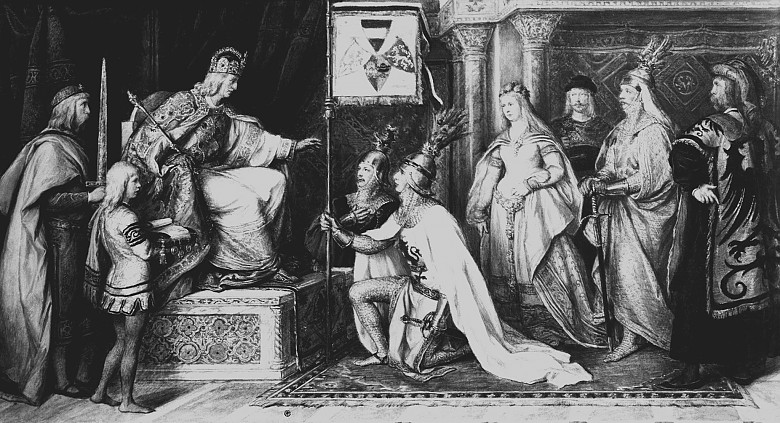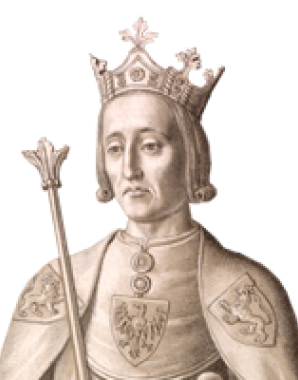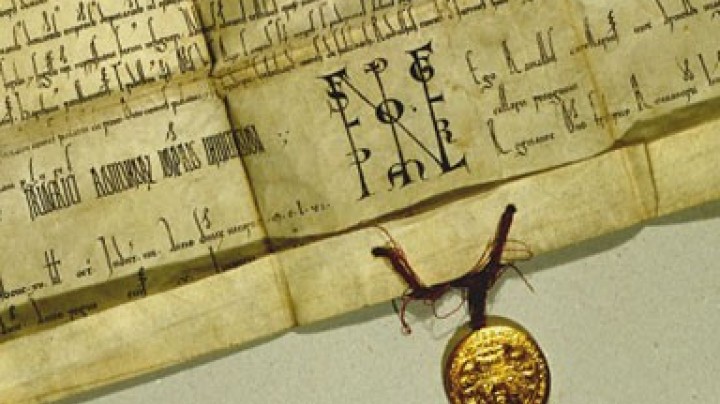Albrecht, the first Habsburg ruler in Austria and Styria
In 1282 Rudolf enfeoffed his two sons Albrecht (I) and Rudolf (II) ‘jointly and severally’ with the two lands. This marks the official start of Habsburg rule in Austria, although the territory had already been under Habsburg control since the victory on the Marchfeld in 1278.
Albrecht was the eldest son of Rudolf I and Gertrud of Hohenberg. Initially active in the Habsburg patrimonial dominions in Alsace, his presence in Austria is not recorded until 1279. In 1281 he was invested with the administration of the former Babenberg lands that had been seized by Ottokar Přemysl. The following year Albrecht and his younger brother Rudolf (II) were jointly and severally enfeoffed with the lands of Austria and Styria together with Carniola and the Windic Mark. Carinthia was immediately pledged to Rudolf’s most important ally in the region, Meinhard II of Gorizia-Tyrol, who had also been Albrecht’s father-in-law since 1274. In 1286 the Habsburg brothers relinquished their title to these territories, which remained under the rule of the Meinhardin dynasty until their extinction in 1335, thereafter reverting to the Habsburgs.
Establishing their rule in Austria and Styria proved to be no simple process. The assertive nobility of these lands was not willing to accept the joint rule of the brothers Albrecht and Rudolf, since this went against local legal custom. On 1 June 1283 Rudolf I therefore installed his elder son Albrecht as sole ruler in the Rheinfelden Dynastic Regulation (Treaty of Rheinfelden). The younger son, Rudolf II, was to be compensated with territories or money. The failure to honour this settlement was to have grave consequences later on.
As the new ruler of these lands, Duke Albrecht filled key positions with intimates from his Swabian homeland, including for example the lords of Wallsee, who swiftly rose to become one of the richest and most influential noble families in the land. This soon provoked great resentment among the native elites. Albrecht acted decisively, confiscating possessions unlawfully acquired by the local nobility during the time of the interregnum to his own benefit. Rebellions in Vienna and Styria were crushed. Nonetheless, the new ruler afterwards took a conciliatory attitude to those who had opposed him.













